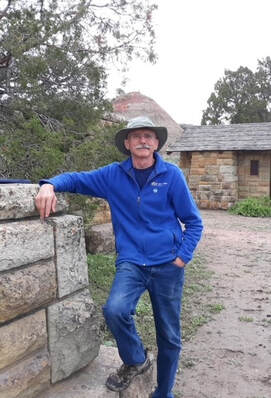|
Ray Wiedmeyer, Beloved Community Communications Team, Ministerial Search Team, Mano a Mano Warehouse Manager  I like to think I am free from bias and that’s a rather comfortable feeling. This spring however I had an uncomfortable thought that gave me pause. I had been listening to a lecture given by a male minister and I noticed how comfortable I was with the delivery and message. The comfort felt quite close to how I felt upon hearing many of Rev. Rob Eller-Isaacs’s sermons. There were a couple moments of comfort with that awareness, but then discomfort followed close behind. Was the comfort I was feeling a sign of some bias I had around white male ministers? I didn’t want to believe that, but the thought has stuck with me for months. You see, I had just been nominated to be a possible candidate on the Ministerial Search Team (MST). I was excited about the possibility of serving but I was now conscious of the fact that any kind of unchecked bias would not serve me, the team, or the congregation. If I was to be a valuable member of the MST, I needed to not let my biases rule my thinking. I realized I might have some work to do. Recently I attended a workshop at Unity led by consultant Alfonso Wenker called “Engaging Awareness, Disrupting Dominance.” The first lesson that day was to notice when a like or irritation came up for me around another person and to notice how that showed up in my body. The ministerial lecture months before had left a sort of soft glow that I had not experienced in a while. More recently, working with a volunteer at Mano a Mano, I found myself assuming certain things because of the woman’s shy demeanor and ethnic background. I came to a certain judgement that first meeting only to find at later volunteer sessions that in her other paid employment as a student, she used skills I would never have imagined she had. My bias based simply on her gender, her demeanor and her ethnic heritage made me fall for the “single story” that many of us may have heard about from Chimamanda Ngozi Adichie on YouTube. Let me be clear I know we all have biases, that’s quite normal. It’s when that bias becomes a perceived identity, we lay on another, that we get into trouble. We then make judgements about their character, skills, and life experience. It's a “single story” that helps me keep the dominant culture dominant. It allows me to only see their age, skin color, gender or hair style as the important measure of their worth. It’s a snap judgement that might help me find my people, but knowingly or not, excludes others, and keeps me from really being ready for the Beloved Community that I say I yearn for. It brings me back now to actually serving on the ministerial search team. In cottage meetings and through the congregational survey, the Unity congregation shared with us what you think is important in a new settled minister. You have shared with us the strengths and the capacity you think that person needs to have, to help us grow into the community we seek to be. If we stop at identity, we may very well fail to see the "other’s" capacity. Identity and capacity are two different but very important parts of who someone is. One’s skin color, gender, hair style, age or perceived physical ability should not be ignored but also should not block us from seeing another’s capacity to do the job. How do we discover that capacity? How is that capacity shaped and expressed by their identity? This is the work of the MST. And hopefully yours as you move out into the world. That brings me to the last step Alfonso talked about once we make that connection between identity and capacity. Heaven knows how many books I have read seeking to raise my awareness, but how do I put that studied awareness into change? I must practice looking beyond my bias. It does not come naturally. So, if you see me pause, take a deep breath, share that I might have a certain bias or make certain assumptions about something before giving an opinion, you will know I am working on my white male privilege. I am noticing a bias, naming it, and then hopefully navigating in a way that does not center "me" but rather centers the "we" that creates Beloved Community.
0 Comments
|
Topics
All
Beloved Community ResourcesUnity Justice Database
Team Dynamics House of Intersectionality Anti-Racism Resources in the Unity Libraries Collection Creative Writers of Color in Unity Libraries The History of Race Relations and Unity Church, 1850-2005 Archives
July 2024
Beloved Community Staff TeamThe Beloved Community Staff Team (BCST) strengthens and coordinates Unity’s antiracism and multicultural work, and provides opportunities for congregants and the church to grow into greater intercultural competency. We help the congregation ground itself in the understanding of antiracism and multiculturalism as a core part of faith formation. We support Unity’s efforts to expand our collective capacity to imagine and build the Beloved Community. Here, we share the stories of this journey — the struggles, the questions, and the collaborations — both at Unity and in the wider world.
The current members of the Beloved Community Staff Team include Rev. Kathleen Rolenz, Rev. KP Hong, Rev. Lara Cowtan, Drew Danielson, Laura Park, Lia Rivamonte and Angela Wilcox. |